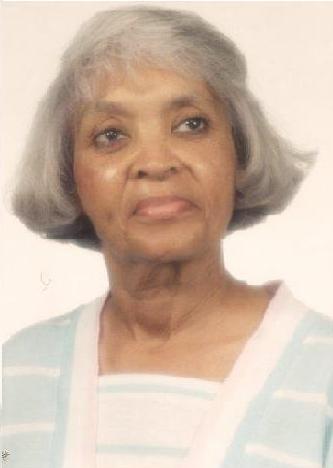Inside the Supreme Court
Petition to Decision
Papers of Supreme Court Justices on Civil Rights Cases
David Achtenberg
Professor & Law Foundation Scholar
UMKC School of Law
Kansas City, MO 64110-2499
816-235-2382
| Archive |
| Timeline |
|
Researcher Information |
489 US 378 (1988)
|
The Archive The Justice's Papers in Archive Order |
The Timeline Chronology with Links to Papers |
Researcher Information Materials for Further Research |
|
City of Canton's Legal Significance |
City of Canton's Background Story |
|
Cases from Monell to Praprotnik raised significant obstacles to successful § 1983 suits against cities. To avoid those obstacles, plaintiffs increasingly framed their cases to argue that cities should be held responsible because they had failed to adequately train their employees. While Tuttle had held that an employee’s constitutional violation would not—by itself—be enough to prove inadequate training, it left open the question of what evidence would be enough and what standard the courts should apply to inadequate training cases. In City of Canton, the Supreme Court answered that question. It adopted a strict "deliberate indifference" standard under which plaintiffs were required to prove that the need for additional training was obvious and that the risk of Constitutional violations from the lack of training was severe. The Court stressed that, in addition to deliberate indifference, the plaintiff needed to prove that adequate training would have prevented the constitutional wrong. Finally, an influential concurring opinion by Justice O'Connor suggested that a plaintiff would have to prove that the city had failed to train the employee about either "a clear constitutional duty implicated in recurrent situations that a particular employee is certain to face," or a constitutional duty that the city knew had already been repeatedly violated by its employees.
|
 Supreme
Court opinions understandably focus on the facts relevant to the
particular issue on which the Court granted review—in
this case, the standard to be applied in failure to train cases.
Reading the Court's opinion in Canton, you
would learn that Geraldine Harris was arrested and put in a paddy wagon,
that she was later found on the paddy wagon floor and twice slumped to
the floor at the police station, that she responded "incoherently" when
asked if she needed medical attention, that she was released to her
family who took her to a hospital by ambulance where she was diagnosed
with "severe emotional ailments," and that she sued claiming,
inter alia, that the city should have provided her medical care
while in custody. These facts may be enough
to understand the Court's decision on failure to train liability, but
they leave most readers with an unflattering and misleading impression
of Ms. Harris and the events leading up
to her lawsuit. Supreme
Court opinions understandably focus on the facts relevant to the
particular issue on which the Court granted review—in
this case, the standard to be applied in failure to train cases.
Reading the Court's opinion in Canton, you
would learn that Geraldine Harris was arrested and put in a paddy wagon,
that she was later found on the paddy wagon floor and twice slumped to
the floor at the police station, that she responded "incoherently" when
asked if she needed medical attention, that she was released to her
family who took her to a hospital by ambulance where she was diagnosed
with "severe emotional ailments," and that she sued claiming,
inter alia, that the city should have provided her medical care
while in custody. These facts may be enough
to understand the Court's decision on failure to train liability, but
they leave most readers with an unflattering and misleading impression
of Ms. Harris and the events leading up
to her lawsuit. At the time of her arrest in 1978, Geraldine Harris and her family would have been seen as models of America's upwardly mobile African American middle class. She was a fifty-two year old homemaker with a high school education. Her husband, Willie "Red" Harris, left sharecropping at age 14 and worked for Republic Steel for almost 40 years. Together, they raised eight children, eventually sending them all to college. One daughter was already a physician and another would become a judge in Cleveland. Ten years earlier, Geraldine's son Ronnie "Mazel" Harris won a Gold Medal in boxing at the 1968 Olympics. (At Geraldine's urging, Ronnie accepted his medal without joining Tommie Smith and John Carlos's Black Power Salute protest.) Geraldine was a respected member of her community and had recently been voted Canton's "Mother of the Year." She had no history of mental or emotional illness. On the morning of April 26, 1978, Geraldine Harris was driving her daughter Bernadette to high school when she was stopped for speeding, an infraction that would normally lead to the issuance of a ticket. The facts leading to Geraldine's subsequent arrest and transportation to the police station were disputed: The officer testified (and Ms. Harris denied) that she refused to show him her driver's license and became uncontrollably upset and uncooperative. Ms. Harris testified (and the officers denied) that the police verbally abused and physically mistreated her and acted unreasonably in other respects. As is often the case, it is difficult to know whose version to believe: On the one hand, no felony or misdemeanor charges were ever filed against Ms. Harris. On the other hand, although the jury awarded her a $200,000 verdict against the city, it denied her any recovery against any of the individual officers thus implicitly rejecting some of her testimony. More than ten years after her arrest, the Supreme Court handed down its decision overturning her verdict against the city. By that time, Ms. Harris was suffering from cancer and no retrial ever occurred. She died of cancer in July of 1991. |